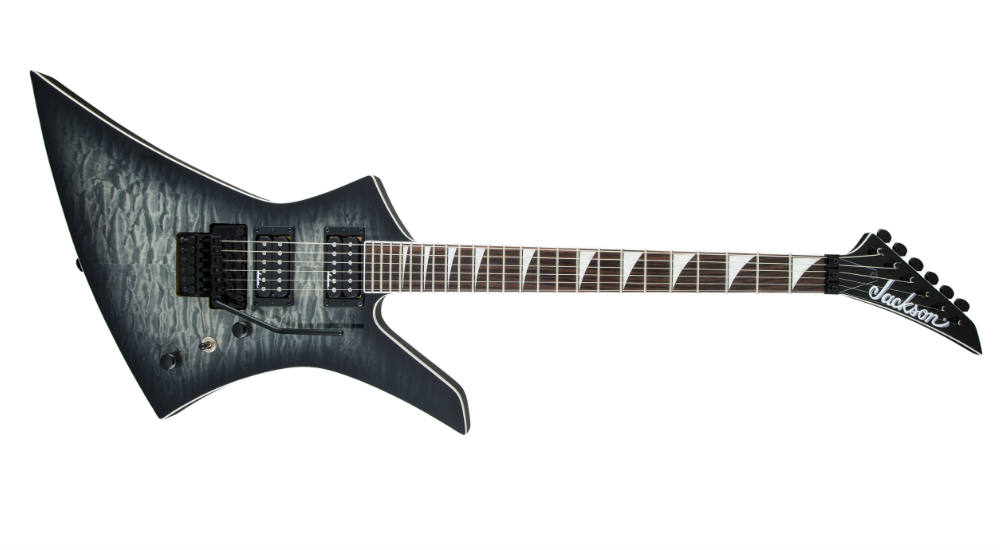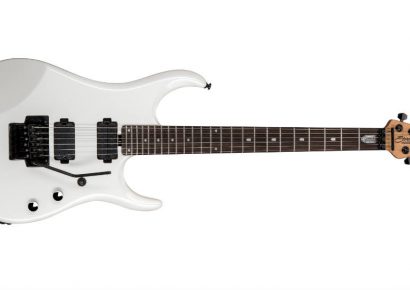On review here are two guitars from the X Series, and in many ways they’re quite similar. Both are 24-fret shred machines with licensed Jackson-branded Floyd Rose tremolos (there are non-trem versions of many Kelly models available, too, if you’d rather not use a wigglestick). Both also have compound-radius fingerboards that smoothly progress from a flattish 12” at the nut end to an even flatter-ish 16” by the time you get to the 24th fret. This makes it easier to bend the heck out of those high notes while also giving the lower positions just enough of a subtle curve to enhance comfort for chording. Each guitar has the same electronics setup: a master volume, a master tone, a three-way pickup selector switch, and a pair of high-output Jackson humbucking pickups, which appear to be the same models found in the Gus G. JS Series model reviewed in this issue.
Where the two models differ is in their wood selections. The KEXM has a one-piece through-body maple neck with maple fingerboard and basswood body wings (and the black sharkfin inlays against the maple board are a nice touch). The KEXQ also has a maple neck-through design with basswood body wings, but also a quilt maple top and a dark rosewood fingerboard. Aside from the visuals, the differences between the two seem pretty subtle, but they also give us a chance to compare just what kind of an impact the variation in materials makes.
The KEXM seems to have a snappier, more up-front attack that emphasises the variation in your fretting-hand phrasing choices. If you’re one of those players who is big on ‘finger tone’ – all those tiny adjustments in fretting pressure, vibrato, microbending, pre-bending, hammer-ons and pull-offs, slides and all that fun stuff – then this guitar will present your playing in its best light. By contrast the KEXQ seems to smooth out some of those qualities just a bit, making it a better choice for those who aim for consistency from one note to the next. It’s like the KEXQ is a little more compressed and rounded, and it’s great for sweep-picking or big wall-of-tone rhythm parts.
Those differences can be pretty subtle though; the aggressive bite of the bridge pickup and the smooth fullness of the neck are consistent between the two, and you can get these two to sound pretty damn similar depending on the amount of distortion you use. Where the differences really become apparent – and what might sway your purchasing choice if you’re torn between the two looks – is what happens in the ‘cranked Marshall’ gain range rather than the ‘5150 and Tube Screamer’ range.

